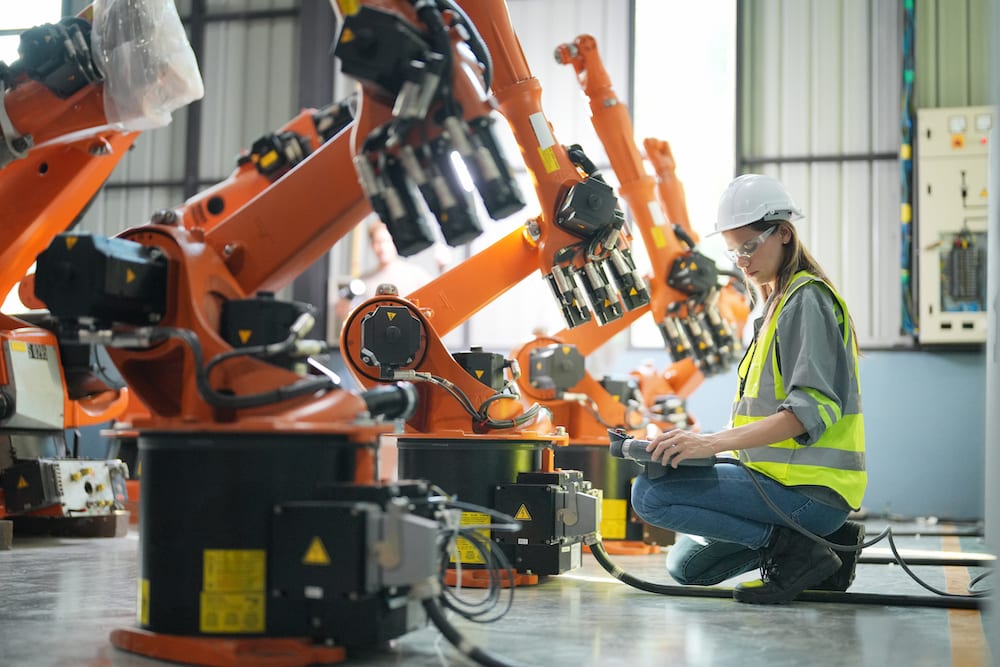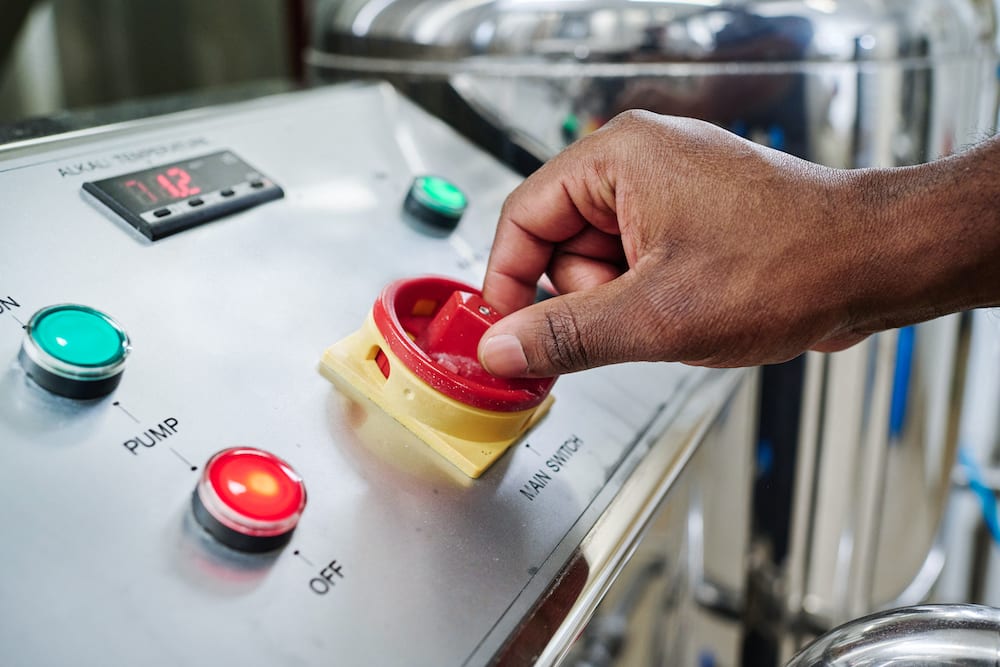- Published Feb 21, 2024
- Last Modified Apr 4, 2024
- 5 min
How Automation & Control Gear Can Reduce Energy Consumption
Discover how automation and control gear enhance energy efficiency in industries. Explore benefits, trends, and strategies with RS Philippines.

In today's industrial landscape, energy efficiency is not just a goal but a critical requirement. With rising energy costs and environmental concerns, industries are turning to automation and control gear, meaning these technologies are becoming increasingly essential. They offer more than just operational efficiency; they are key in reducing energy consumption and managing resources smartly. As industries strive for sustainable growth, the role of automation and control gear in advancing industrial energy efficiency becomes increasingly significant. Let's take a closer look at these technologies and their impact.

What is Automation & Control Gear?
Automation in industrial settings refers to the use of technology to perform tasks with minimal human intervention. It encompasses systems and software that automatically control equipment, enhancing operational speed and accuracy. Control gear, in contrast, specifically involves electrical devices designed to manage and regulate machinery functioning. This includes components like float switches, overload relays, and circuit breakers, ensuring machinery operates efficiently and safely. While distinct in their functions, both automation and control gear are integral to modern industrial operations, each contributing uniquely to optimizing processes and equipment performance.
What are the Energy Efficiency Challenges in Industries?
Industries worldwide face a myriad of energy efficiency challenges, from the need to modernize aging infrastructure to grappling with rising energy costs. These universal challenges are particularly acute in the Philippines, where unique pressures mark the energy landscape. For instance, the anticipated depletion of the Malampaya gas fields by 2024, a crucial energy source for Luzon, signals an impending energy crisis. This situation not only escalates operational costs for industries but also intensifies environmental concerns, such as increased carbon emissions. Thus, pursuing energy efficiency is an economic imperative and a crucial step towards environmental responsibility.
What is the Role of Automation & Control Gear in Energy Savings?
Automation and control gear, key elements in equipment control, are pivotal in enhancing energy efficiency within industrial environments. Automation significantly contributes by managing repetitive tasks and dynamically adjusting operations, thereby reducing energy waste. Control gear complements this by precisely regulating energy supply to machinery, optimizing consumption, and conserving resources. This dual approach decreases the overall energy expenditure in industrial processes and extends the lifespan of equipment. By streamlining operations and optimizing energy use, automation and control gear are essential in pursuing sustainable and efficient energy management.
What are the Benefits of Implementing Energy-Saving Automation?
Implementing energy-saving automation extends beyond direct energy efficiency, offering a range of strategic benefits. It leads to substantial cost reductions by lowering energy expenses and enhancing financial sustainability for businesses. Furthermore, automation aligns industrial operations with environmental sustainability goals by significantly reducing carbon footprints. Productivity also greatly improves as automated systems streamline workflows and allocate human resources more effectively for strategic tasks. Additionally, the reliability and effectiveness of operations improve, contributing to overall enhanced system performance. These diverse benefits of energy-saving automation are crucial in achieving a harmonious balance of efficiency, sustainability, and economic growth.
What are the Strategies for Implementing Energy Efficiency?
Industries aiming to enhance energy efficiency should start by analyzing their current energy use and pinpointing areas for improvement. Key strategies include implementing energy-saving automation solutions, such as upgrading to more efficient control devices. For instance, using control device examples like advanced sensors and smart meters can significantly alter energy consumption patterns. Optimizing existing systems is also crucial; this involves fine-tuning operational processes and retrofitting older equipment with energy-efficient alternatives. Regular maintenance and monitoring for energy leaks or inefficiencies ensure ongoing optimization.
Charting the Future of Industrial Efficiency

As we look to the future, the evolving landscape of automation and control gear holds immense promise for further enhancing industrial energy efficiency. Innovations like AI-driven automation, IoT integration, and smart control systems are at the forefront, transforming the way industries operate. These advancements not only make energy-efficient practices more accessible but also significantly improve sustainability and operational excellence. Embracing these technologies is critical for industries aiming to stay ahead.
At RS Philippines, we are fully aligned with these evolving trends, providing a wide array of advanced electrical control devices and valuable resources, including guides on the importance of machine safety and the future of automation. We invite you to explore our comprehensive solutions and partner with us in steering towards a more energy-efficient and sustainable industrial future.
Popular Automation & Control Gear Brands
Schneider Electric
Schneider Electric offers a diverse range of automation and control gear, including advanced PLCs, reliable motor control equipment, and overload relays. Their products are known for improving efficiency and precision across various industries, enhancing safety and energy management with their innovative designs.
Eaton
Eaton's expertise in automation and control gear is evident in their robust product line, featuring innovative switchgear, protective relays, and beacons. These products are celebrated for their durability and safety, making them a go-to choice in sectors that demand high reliability and clear signaling, such as utilities and industrial environments.
Siemens
Siemens excels in delivering state-of-the-art automation and control gear solutions, including HMI interfaces, industrial automation systems, and circuit breakers. Their commitment to innovation and quality has cemented Siemens' position as a leader in advancing technology across diverse industries, from manufacturing to energy distribution.
Related links
- The Importance of Energy Audits for Businesses in the Philippines
- Your Smart Choice for Energy Saving
- Energy Management in Manufacturing Plants
- The Future of Automation – A Guide to What’s Next
- Important PPE Equipment for Safe Construction Work
- The Importance of Surveillance Cameras in Manufacturing Establishments
- Reduce Office Energy Use with Efficient PC Power Supplies
- Energy-Efficient Industrial Water Management: Smart Metering and Pumping